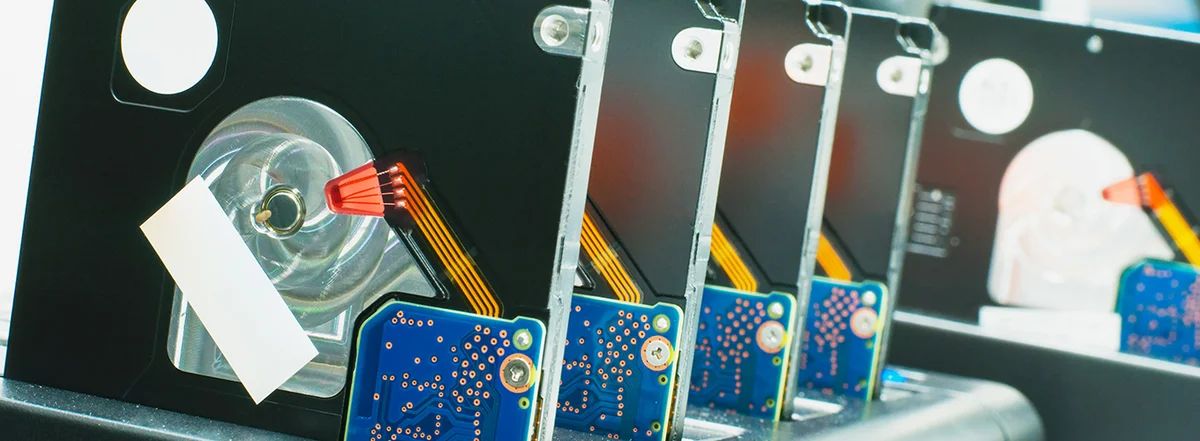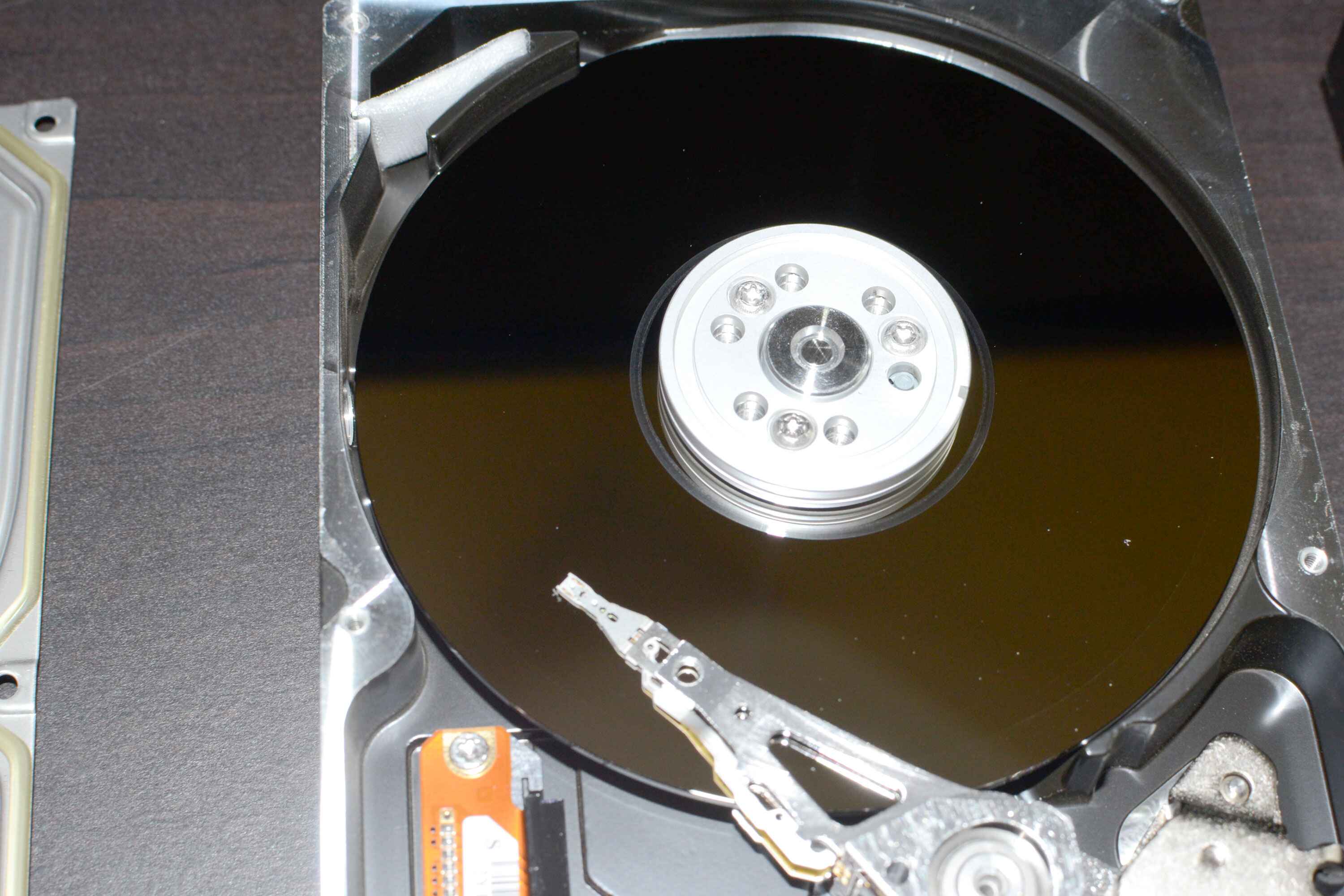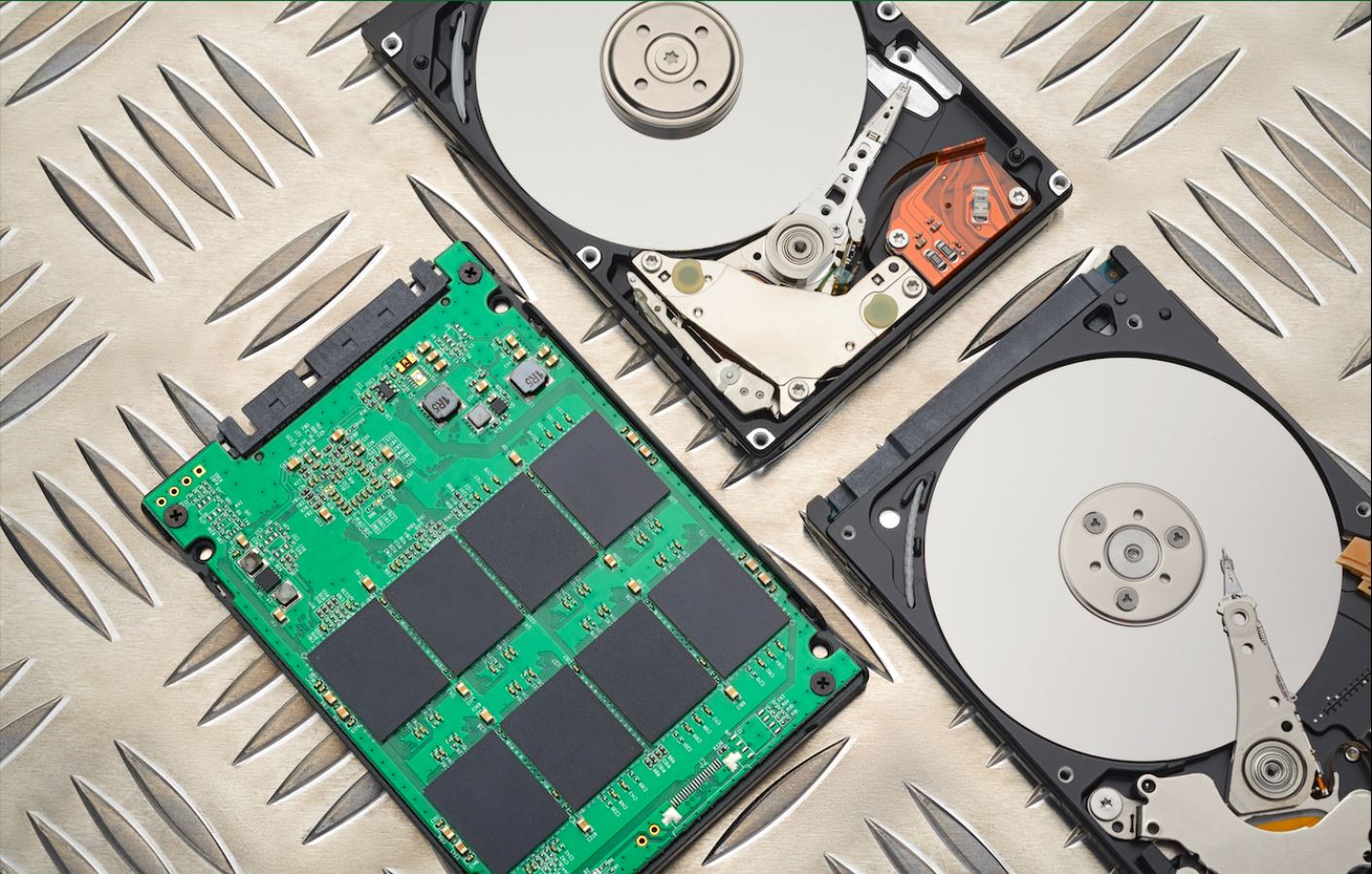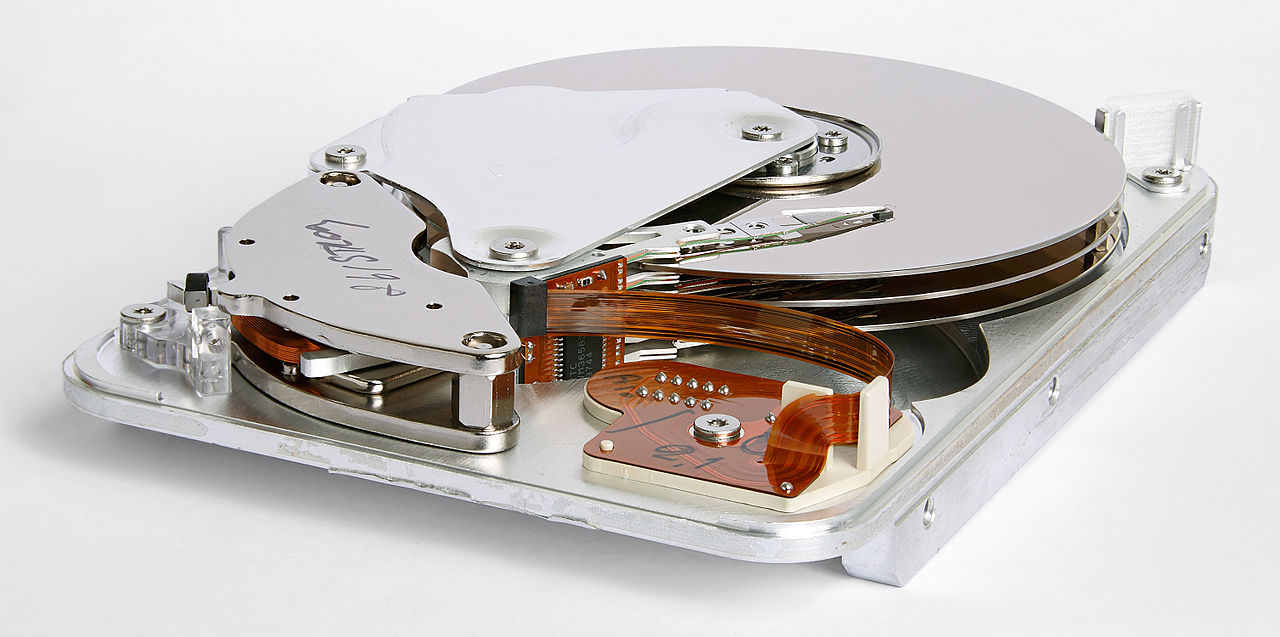Introduction
Welcome to the world of computer storage! In this digital age, where data has become the backbone of various industries, the need for reliable and efficient storage solutions is more important than ever. One such solution that has stood the test of time and continues to be widely popular is the hard disk drive (HDD).
From personal computers to enterprise-level servers, HDDs have become the go-to choice for storing and accessing large amounts of data. But what makes them so popular? In this article, we will delve into the various reasons behind the enduring popularity of hard disk drives.
But before we dive in, let’s first understand the basics of a hard disk drive. At its core, an HDD is a mechanical storage device that uses magnetism to read and write data. It consists of one or more rotating platters, onto which data is magnetically recorded.
Unlike solid-state drives (SSDs) that use flash memory, HDDs offer a unique combination of reliability, storage capacity, cost-effectiveness, compatibility, and versatility. These attributes make them a preferred choice for a wide range of users, from individuals with personal computers to enterprises with massive data centers.
In the following sections, we will explore each of these aspects in more detail to gain a deeper understanding of the popularity and appeal of hard disk drives. So, without further ado, let’s jump right in!
The Basics of Hard Disk Drives
Before we delve into the reasons behind the popularity of hard disk drives (HDDs), it’s essential to understand the fundamental workings of these storage devices. HDDs consist of several key components that work together to store and retrieve data.
The main component of an HDD is the rotating platters, typically made of glass or aluminum. These platters are coated with a magnetizable material and spin at high speeds, typically ranging from 5400 to 15,000 revolutions per minute (RPM). Data is written and read from the platters using read/write heads, which hover just above the surface of the spinning platters.
To navigate across the platters and access different areas of data, the read/write heads are mounted on a mechanical arm called the actuator. The actuator moves the read/write heads accurately and quickly to the desired location on the platters.
Inside the hard disk drive, there is also a printed circuit board (PCB) that controls the operations of the drive. The PCB contains the necessary electronics, firmware, and connectors to facilitate data transfer between the drive and the computer. It also manages tasks such as error correction, power management, and interface communication.
When it comes to data storage, HDDs use magnetism. Each platter is divided into concentric circles called tracks, which are further divided into sectors. Data is stored within these sectors in the form of magnetic bits, with each bit representing a binary value of either 0 or 1.
As the platters spin, the read/write heads detect the magnetic states of the bits and translate them into digital data that can be understood by the computer. This process allows for the reading and writing of data on the hard disk drive.
In terms of interface, HDDs typically use SATA (Serial ATA) or SAS (Serial Attached SCSI) connections to connect to the computer. These interfaces allow for high-speed data transfer between the HDD and the computer, ensuring efficient access to stored data.
Now that we have a basic understanding of how hard disk drives function and store data, let’s explore the reasons why they continue to be a popular choice for data storage in various applications.
Reliability and Durability
One of the primary reasons behind the enduring popularity of hard disk drives (HDDs) is their remarkable reliability and durability. HDDs are designed to withstand the rigors of everyday use, making them a trusted choice for long-term data storage.
Unlike some other storage technologies, HDDs have a proven track record of reliability. The mechanical design of HDDs has been refined over the years, resulting in robust and dependable performance. Their construction allows them to handle both read and write operations consistently, ensuring data integrity and minimizing the risk of data loss.
Furthermore, HDDs are built to withstand physical shocks and vibrations, thanks to their sturdy design. This durability makes them well-suited for various environments, including desktop computers, laptops, and even portable external drives. Whether it’s being carried around, subjected to temperature fluctuations, or experiencing minor accidents, HDDs can endure and continue functioning optimally.
Another key aspect of the reliability of HDDs is their ability to retain data even when not powered. HDDs store data magnetically, which means that the information persists on the platters even when the drive is turned off. This feature allows for long-term data retention and offers an added layer of peace of mind.
Additionally, HDDs often come with advanced error-correction algorithms. These algorithms detect and rectify errors that may occur during the reading or writing process, ensuring the accuracy and integrity of the stored data. With these built-in error-correction mechanisms, HDDs can continue operating reliably, even when faced with occasional data corruption or other issues.
It is worth noting that while HDDs are known for their reliability, they, like any other technology, are not immune to failure. Mechanical components can wear out over time, and external factors such as power surges or physical damage can also impact the performance of an HDD. However, with proper maintenance and care, the lifespan of an HDD can be extended, allowing for continued reliable operation.
In summary, the reliability and durability of hard disk drives make them a trusted choice for data storage. Their robust construction, resistance to shocks and vibrations, ability to retain data, and built-in error-correction mechanisms contribute to their long-standing popularity and reliability in various applications.
Storage Capacity
When it comes to data storage, one of the key factors that contribute to the popularity of hard disk drives (HDDs) is their impressive storage capacity. HDDs offer an abundance of space to store various types of data, ranging from personal files to large-scale enterprise databases.
Over the years, the storage capacity of HDDs has significantly increased. Modern HDDs can offer terabytes (TB) or even petabytes (PB) of storage space, allowing users to store and access vast amounts of information conveniently. This large capacity makes HDDs particularly suitable for applications that require extensive data storage, such as video editing, gaming, multimedia content creation, and server applications.
HDDs also excel in terms of cost per gigabyte of storage. They offer a cost-effective solution for storing large volumes of data compared to other storage technologies, such as solid-state drives (SSDs). HDDs provide a balance between storage capacity and affordability, making them an attractive choice for individuals and organizations with budget constraints.
Furthermore, HDDs have a modular design, allowing for easy expansion of storage capacity. Additional HDDs can be connected and added to existing systems without much hassle, making it convenient to scale up storage capabilities as data requirements increase.
For users who require high-performance storage, HDDs offer options with various rotational speeds. Faster RPMs result in quicker data access times, enabling faster read/write operations. This feature is particularly beneficial for applications where speedy data retrieval is paramount, such as gaming or real-time video editing.
While solid-state drives have gained popularity due to their faster data transfer speeds, HDDs still have the upper hand when it comes to storage capacity. SSDs are generally more expensive and have limited storage capacities compared to HDDs. Thus, many users and organizations opt for HDDs to get the most bang for their buck without compromising on storage capacity.
In summary, the impressive storage capacity of HDDs, coupled with their cost-effectiveness and expandability, contributes to their continued popularity as a storage solution. Whether it’s for personal or professional use, HDDs offer ample space to store vast amounts of data, making them a reliable choice for those in need of extensive storage capabilities.
Cost-effectiveness
Cost-effectiveness is a crucial factor that contributes to the enduring popularity of hard disk drives (HDDs) as a storage solution. HDDs offer an excellent balance between storage capacity and affordability, making them a cost-effective choice for both personal and enterprise use.
One of the primary advantages of HDDs is their relatively lower cost per gigabyte compared to other storage technologies, such as solid-state drives (SSDs). This affordability allows users to acquire large amounts of storage space without breaking the bank. For individuals with budget constraints or organizations with extensive data storage needs, HDDs provide an attractive solution.
Additionally, the manufacturing process of HDDs has become highly refined over the years, which has led to significant cost reductions. These savings are passed on to consumers in the form of lower prices for HDDs. As a result, HDDs remain a cost-effective option even as the demand for storage capacity continues to grow.
Another factor that affects the cost-effectiveness of HDDs is their longevity. While the lifespan of an HDD can vary depending on usage and environmental factors, they can typically operate reliably for several years. Their durability and resistance to physical shocks and vibrations contribute to their longevity, allowing users to enjoy cost-effective storage for an extended period.
In addition to the lower initial cost, HDDs also offer flexibility in terms of storage expansion. If users require more storage capacity in the future, they can easily add additional HDDs to their systems. This scalability feature eliminates the need for costly upgrades or complete device replacements, further enhancing the cost-effectiveness of HDDs.
It is important to consider that while HDDs are cost-effective, they might not provide the same level of performance as solid-state drives. SSDs offer faster data transfer speeds and quicker access times, but they come at a higher cost per gigabyte. The choice between HDDs and SSDs depends on the specific needs and budget of the user.
In summary, the cost-effectiveness of hard disk drives makes them an attractive option for individuals and organizations seeking affordable storage solutions. Their lower cost per gigabyte, longevity, and scalability contribute to their popularity and continued use in various applications.
Compatibility with Different Devices
One of the key factors that contribute to the popularity of hard disk drives (HDDs) is their compatibility with a wide range of devices. From desktop computers to laptops, gaming consoles to network-attached storage (NAS) devices, HDDs are designed to work seamlessly with various platforms and operating systems.
HDDs typically use standard interfaces such as SATA (Serial ATA) or SAS (Serial Attached SCSI), which are widely supported by modern computers and devices. This compatibility ensures that HDDs can be easily connected and used with different systems, without the need for additional adapters or specialized hardware.
Another advantage of HDDs in terms of compatibility is their cross-platform support. Whether you use a Windows PC, a macOS device, or a Linux-based system, HDDs can be recognized and accessed by all these operating systems. This versatility makes HDDs an ideal choice when you need to transfer data between different devices or work on multiple platforms.
Furthermore, HDDs are compatible with a vast array of external enclosures, docking stations, and media players. These accessories provide additional functionalities and connectivity options, allowing users to expand the capabilities of their HDDs. For example, HDDs can be easily connected to smart TVs or media players to play movies and music directly from the drive.
In addition to device compatibility, HDDs also offer flexibility in terms of file system support. They can be formatted with different file systems, such as FAT32, NTFS, or exFAT, allowing for seamless compatibility between different operating systems and devices. This flexibility enables easy data sharing and transfer across various platforms.
Moreover, the compatibility of HDDs extends to enterprise-level applications. They are often used in server environments, where compatibility with RAID arrays and storage management systems is crucial. HDDs are designed to work seamlessly with these enterprise-level solutions, ensuring reliable data storage and efficient data management.
It is important to note that while HDDs are compatible with a wide range of devices, certain older devices or niche platforms might require additional adapters or connectors to connect with HDDs. However, overall, HDDs offer extensive compatibility, ease of use, and seamless integration with a multitude of devices.
In summary, the compatibility of hard disk drives with different devices, operating systems, and platforms makes them a versatile storage solution. Their support for various interfaces, cross-platform recognition, file system flexibility, and compatibility with enterprise applications contribute to their popularity and widespread usage.
Versatility
When it comes to versatility, hard disk drives (HDDs) are hard to beat. HDDs offer a wide range of applications and can be used in various scenarios, making them a versatile storage solution for different needs.
One of the primary areas where HDDs shine is personal computing. Whether you’re a casual user, a student, or a professional, chances are you rely on an HDD to store your files, documents, photos, videos, and other digital assets. HDDs provide ample storage space for personal data, allowing users to keep their files organized and easily accessible.
Additionally, HDDs are often used in gaming consoles. As games continue to grow in size, the storage capacity provided by HDDs becomes even more valuable. Gamers can store a wide variety of games, downloadable content, and updates on their HDDs, allowing for quick access and seamless gaming experiences.
Moreover, HDDs are widely used in video surveillance systems. The large storage capacity of HDDs enables the continuous recording of high-definition video footage from multiple cameras over extended periods. This versatility makes HDDs a trusted choice for security systems in residential, commercial, and industrial settings.
HDDs also play a vital role in enterprise-level storage solutions. From small businesses to large corporations, HDDs are used in network-attached storage (NAS) devices and servers to store and manage massive amounts of data. The scalability and reliability of HDDs make them well-suited for data-intensive applications, such as data backup, archiving, and cloud storage.
Another area where HDDs demonstrate their versatility is in the creative industry. HDDs provide the storage capacity necessary to store large multimedia files, including high-resolution images, audio recordings, and video projects. Photographers, videographers, graphic designers, and other creative professionals rely on HDDs to store and back up their creative work effectively.
Furthermore, HDDs can be used as external drives, allowing for portable storage and easy sharing of files between different computers or devices. Whether it’s transferring files between friends, collaborating on projects, or storing important documents while on the go, HDDs offer convenience and versatility in mobile storage solutions.
In summary, the versatility of hard disk drives makes them suitable for a wide range of applications. They can be used in personal computing, gaming consoles, video surveillance systems, enterprise storage solutions, creative industries, and as portable storage devices. HDDs offer the storage capacity and flexibility needed to adapt to different scenarios and meet diverse storage needs.
Conclusion
Hard disk drives (HDDs) continue to be a popular choice for storage solutions due to their reliability, storage capacity, cost-effectiveness, compatibility, and versatility. With their mechanical design, HDDs offer a robust and durable option for long-term data storage. They can withstand physical shocks and vibrations, ensuring data integrity and providing peace of mind for users.
HDDs boast impressive storage capacities, allowing individuals and organizations to store and access vast amounts of data conveniently. Additionally, HDDs offer a cost-effective solution, providing a balance between storage capacity and affordability. Their scalability and compatibility with various devices and operating systems make HDDs versatile and adaptable to different usage scenarios and platforms.
While solid-state drives (SSDs) have gained popularity for their faster data transfer speeds, HDDs excel in terms of storage capacity and cost-effectiveness. HDDs provide an excellent option for users who require extensive storage without compromising on budget constraints.
Whether it’s personal computing, gaming, video surveillance, enterprise storage, creative industries, or portable storage, HDDs have proven to be a versatile choice. They cater to a wide range of applications and can meet the diverse storage needs of individuals and organizations alike.
In conclusion, the enduring popularity of hard disk drives is rooted in their reliability, storage capacity, cost-effectiveness, compatibility, and versatility. HDDs continue to be a trusted and accessible storage solution in the ever-expanding digital landscape, providing individuals and businesses with the means to store and access their valuable data efficiently.

























